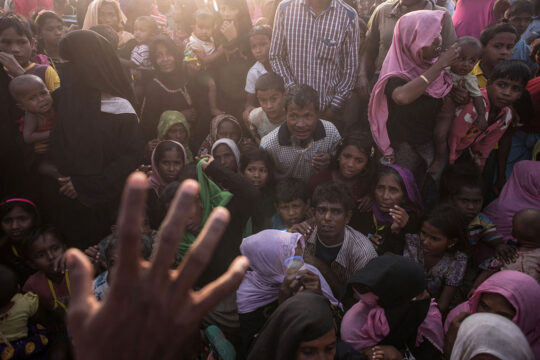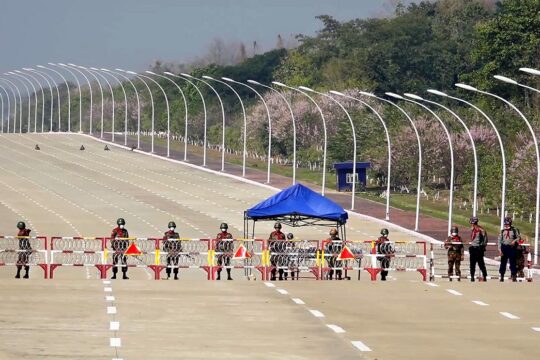Muslim Rohingya fleeing their homes in Myanmar are facing "ethnic cleansing" but whether they are victims of genocide remains unclear, international justice experts told AFP.
About 422,000 refugees from the stateless Muslim minority have fled Myanmar's westernmost Rakhine state to Bangladesh since August 25, alleging torture and rape by Myanmar troops and Buddhist militias.
Their plight has sparked UN accusations of military-led ethnic cleansing, but French President Emmanuel Macron has said the attacks amount to genocide.
- What is the difference between genocide and ethnic cleansing? -
"These are closely related terms and indeed, sometimes the means by which genocide is committed will be the same as those by which ethnic cleaning is committed," said international law expert Mark Kersten of the University of Toronto. "However, genocide is the attempt to destroy a particular group," he added.
Under the UN Convention to prevent genocide, which came into force in 1951, perpetrators must be shown to have the "intent to destroy in whole or in part" a group based on its nationality, ethnicity, race or religion. "This is what makes it a particularly difficult crime to prove and prosecute," Kersten said. "Ethnic cleansing is much more about the removal of particular group from a particular territory, often in border-regions of states seeking to rid themselves of what they believe to be undesirable populations."
However, "this very act of ethnic cleansing can lead to the destruction of the group's population, or a part of the group's population, which would then amount to genocide."
Ethnic cleansing is also not a criminal charge in international law. It first came into wide usage in the 1990s to describe atrocities including forcible removals of minority groups during the break-up of the former Yugoslavia. In 2005, a UN World Summit included ethnic cleansing along with genocide, war crimes and crimes against humanity as four things states have a duty to protect their populations from.
- What seems to be happening to the Rohingya? -
After hundreds of Rohingya militants staged coordinated attacks on 30 police posts in Rakhine, the Myanmar army responded with "clearance operations" in Rohingya villages.
Witnesses said Rohingya civilians were massacred in retaliation, with mortars and machine guns fired at fleeing villagers, while their homes were torched.
"Almost certainly the acts we are referring to are ethnic cleansing, and would be considered crimes against humanity," Stephen Rapp, former US ambassador for war crimes issues, told AFP, calling it a "systematic attack against a civilian population." "Do we have genocide?" he asked, adding it would be possible to argue that was the case since Myanmar is "driving people off and doing absolutely nothing to provide them with humanitarian access, food and medicine." But as in the trials before the UN's International Court for the Former Yugoslavia "killing some to force others to leave has been found not to be genocide."
Only in the 1995 massacre at Srebrenica, in which almost 8,000 Bosnian Muslim men and boys were separated from their families, lined up and shot has any defendant been found guilty of genocide in the Balkans conflict.
- Will anyone be put in the dock? -
Myanmar is not a signatory to the Rome Statute which underpins the world's only permanent war crimes tribunal -- the International Criminal Court (ICC) in the Hague -- even though Bangladesh is one of the few Asian countries to have joined. "Does the ICC have jurisdiction now? Only if a part of this crime is viewed as on the territory of Bangladesh would it be considered an ICC case," said Rapp, now a fellow with the Hague Institute for Global Justice. "That would have to involve some of the army coming over the line and taking actions in Bangladesh territory to commit crimes against Rohingyas."
The other option would be for the UN Security Council to refer the matter to the court, as it has done with Darfur in western Sudan. But with China likely to oppose such a move and "the United States invested in the post-transition in Myanmar, I think they would be reluctant" to send it to the ICC, Rapp said.




